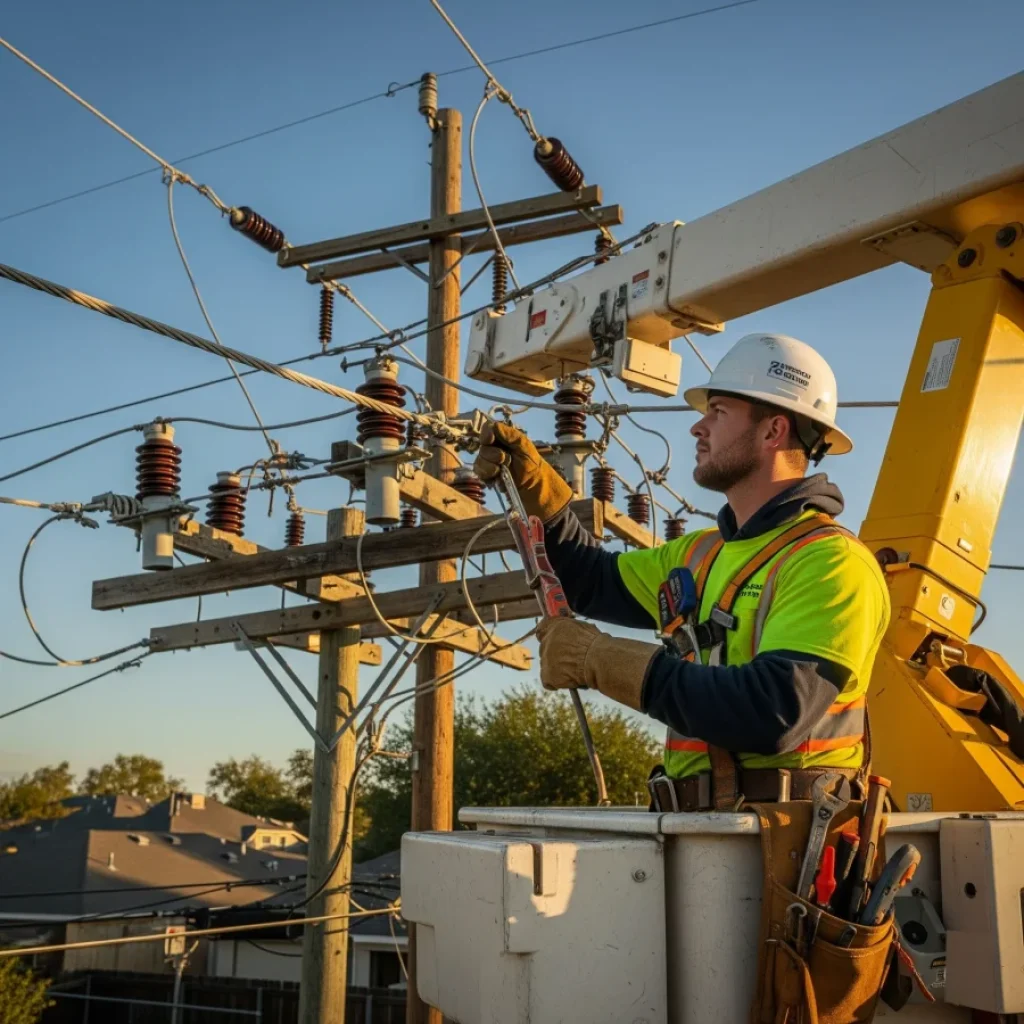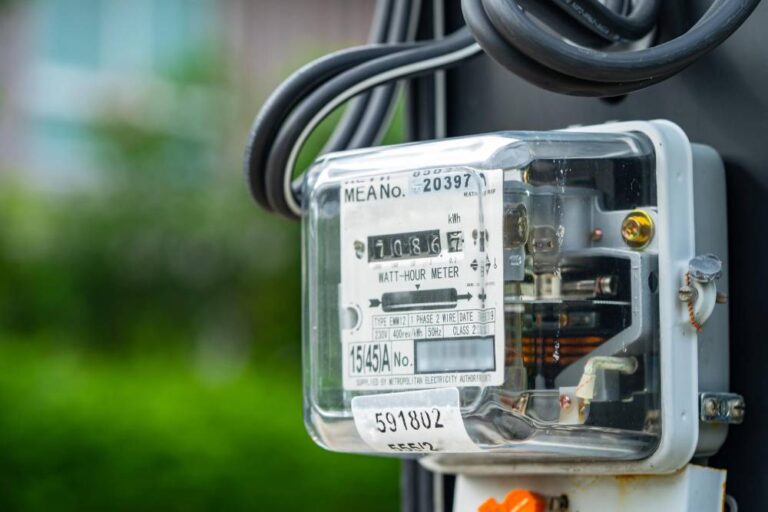How Many Jobs Are Available In Electric Utilities Central?
Key Takeaways
- The U.S. electric utilities sector provides over 550,000 stable jobs, with consistent growth projected through 2030 driven by infrastructure and renewable energy projects.
- Top-paying roles include Nuclear Power Reactor Operators and Electrical Engineers, with many skilled trade positions like Electrical Lineman also offering highly competitive salaries.
- Entry into the industry does not always require a four-year degree; paid apprenticeships, vocational training, and specialized certifications are common and effective pathways.
- Technology like AI and smart grids is transforming the industry, creating new opportunities and enhancing existing roles rather than replacing them.
The U.S. electric utility sector powers our modern world, and I’ve always been fascinated by its sheer scale. It’s a massive industry employing over 550,000 people across the US, from linemen scaling poles in harsh weather to engineers designing the smart grids of the future. If you’re curious about the career opportunities here, you’re in the right place. Let’s dive deep into what this essential sector truly offers.

What Is the Electric Utility Sector? A Quick Overview
The electric utility sector is the backbone of the power industry. Its core mission is to ensure the reliable flow of electricity from where it’s made to where it’s used. The industry is broadly divided into three main functions:
- Generation: This is where electricity is created at power plants using sources like natural gas, nuclear, hydropower, wind, and solar.
- Transmission: This involves moving that high-voltage electricity over long distances from the power plants to regional substations.
- Distribution: This is the final step, where the electricity is delivered from local substations to our homes and businesses.
This intricate process is the backbone of our economy, and its complexity creates a wide and varied range of career opportunities.
Current Job Availability and Employment Statistics
As of 2025, the sector remains a pillar of the American workforce. According to data from the Bureau of Labor Statistics (BLS), employment in utilities is not just stable; it’s projected to grow, fueled by nationwide infrastructure upgrades and the shift toward renewable energy sources.
The demand for skilled professionals to build, maintain, and modernize the power grid ensures a steady stream of job openings each year. I’ve seen firsthand how vital these roles are—without these dedicated individuals, our daily lives would grind to a halt. This resilience makes it a compelling field for long-term career stability.
The Best-Paying Jobs in Electric Utilities
Many roles in this sector are not only stable but also financially rewarding. Nuclear Power Reactor Operators are among the top earners, often exceeding $100,000 annually due to the immense responsibility and specialized training required.
Other high-paying roles include Electrical Engineers, who design and manage grid components, and Power Plant Managers. Critically, skilled trades like Electrical Linemen, who perform physically demanding work to keep the grid operational, also command excellent salaries, often well above the national average.
Career Paths and How to Enter the Industry
Starting a career here often begins with practical training rather than a traditional four-year degree. The most respected pathway for skilled trades is a paid apprenticeship, often sponsored by a union or utility company. These programs, like those for linemen, combine hands-on experience with classroom theory.
Attending a vocational school or trade school for a certificate can significantly improve your chances of landing an apprenticeship. For engineering and management tracks, a relevant university degree is the standard route. Regardless of the path, obtaining industry certifications is key to career advancement.
Pros and Cons of Working in Electric Utilities
From my experience speaking with people in the field, the biggest “pro” is undeniable job security. Electricity is a non-negotiable service, making these jobs incredibly stable. This stability, combined with competitive pay and strong benefits, is a major draw.
However, it’s crucial to consider the “cons.” The primary challenge for many roles is the physical demand and a strict adherence to safety protocols. Linemen, for example, work outdoors in extreme weather and at dangerous heights. This is very different from the demands of customer-facing roles you might find when working in the hotel industry. While organizations like OSHA provide rigorous safety standards, the inherent risks are real. Balancing the promise of security with the reality of the physical demands is essential.
Future Outlook and Impact of Technology
The future of electric utilities is dynamic. Technologies like AI and smart grids are not eliminating jobs but rather revolutionizing them, creating a need for a more tech-savvy workforce to manage an efficient, responsive grid. The rapid growth of renewable energy systems, particularly solar and wind, is also creating entirely new career paths for technicians and maintenance crews.
So, are electricians in demand in 2025 and beyond? Absolutely. The ongoing need to modernize our aging infrastructure, coupled with technological advancements, ensures a positive job outlook.
Comparison with Other Industries
When comparing careers within the energy field, it’s useful to look at adjacent sectors. For example, a career in natural gas distribution shares many similarities in terms of stability and required skills. While the electric utility sector offers unmatched job security, other stable fields like stable careers in the financial sector offer a different set of challenges and rewards in a corporate environment.
Companies like Pacific Gas and Electric (PG&E) or Exelon demonstrate how this industry uniquely blends the stability of a utility with the growth potential of a technology company, making it a solid choice among career options.
Electrical Lineman (Line Installer & Repairer)
This is one of the most critical and iconic jobs in the industry. Linemen install, maintain, and repair the high-voltage power lines that make up the grid. It is physically demanding work that requires an unwavering commitment to safety protocols. Linemen rely on a specific set of tools to perform their job safely, and having the right tool bag for maintenance work is crucial for keeping their equipment organized and accessible at heights.
Substation Technician
Substation technicians work inside electrical substations, maintaining and repairing the crucial equipment, like circuit breakers and transformers, that control the flow of power. It’s a highly technical role perfect for those who are meticulous and enjoy complex problem-solving.
Wind Turbine Technician
As the renewable energy sector grows, the demand for wind turbine technicians is soaring. These technicians inspect, diagnose, and repair wind turbines. It’s a role that combines mechanical and electrical skills and often involves working at significant heights.
Nuclear Engineer
A nuclear engineer is an engineering professional who is responsible for the safe operation of nuclear power plants. They typically hold a bachelor’s degree in engineering and must pass a rigorous licensing exam, with salaries often exceeding $120,000 annually.
Conclusion
The electric utilities sector offers a vast landscape of opportunity with strong growth projected for the future. Whether you are drawn to high salaries, long-term stability, or hands-on technical work, there is likely a place for you. With robust training programs and exciting technological shifts on the horizon, now is an excellent time to consider powering up your career in this essential industry.
Frequently Asked Questions (FAQ)
Is The Electric Utilities Sector A Good Career Path?
Yes, for those who value stability, competitive pay, and hands-on work, it is an excellent career path. However, it’s important to be prepared for the physical demands and rigorous safety requirements of many roles.
What Is The Highest-Paid Job In The Electrical Field?
While senior engineering and management roles are very high-paying, one of the top-earning positions is a Nuclear Power Reactor Operator, with average salaries often exceeding $100,000 per year.
How Do You Start A Career In Utilities Without A Degree?
The most common path is through a paid apprenticeship program for a skilled trade like a lineman or substation technician. Attending a vocational or trade school first can significantly improve your chances of being accepted into an apprenticeship.
Are Electricians In Demand In 2025?
Yes, electricians and skilled utility workers are in high demand. This is driven by an aging workforce, the need to modernize the national power grid, and the rapid growth of renewable energy projects.






